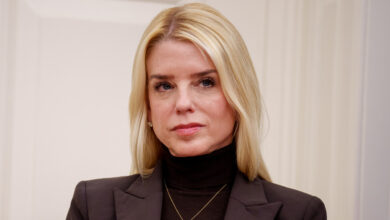
Economists Take a Stand Against Class Warfare
By: Todd Smekens
Muncie, Indiana – As I wrote about last month, the budget cuts and tax reform bill approved in both the senate and house, are Robin Hood in reverse. As Paul Ryan tipped his hat recently on Twitter, the next plan of attack on the American people will occur in 2018 over cuts/reforms to Medicare, Social Security, and Medicaid. Attacking the social contract with the American people is class warfare. If the media you watch, read or listen to isn’t stating this fact, they’re mere propagandists.
Earlier this week, Bernie Sanders offered up his speaking time during the tax reform proposal to any Republican senator who would promise not to come back after Medicare, Social Security, and Medicaid. Not a single senator rose to the occasion. He knows it’s the plan of the donors who fund the Republican party. The tax reform bill creates a $1.4 trillion deficit – mainly allowing corporations and the 1% to keep more dollars. To offset, the poor, elderly and disabled will have to make due with less.
That has always been their plan once they had enough numbers to make it happen. Or should I say, it has been the goal of the Koch brothers and other donors to roll back the Social Contract made with the American people in the 1930’s – the New Deal? FDR saved capitalism or the goose that lays the golden eggs for our country’s Plutarchs. At the time, Industrialists had ruled America since inception.
By the people, for the people was a marketing ploy. Those who owned the country ruled the country, and many of our Founders wanted free labor called slaves. Do you honestly think times have changed?
Industrialists relocated their companies around the world looking for the cheapest labor possible. The media and propagandists tell us that unions were the cause of them moving their plants overseas. Because of the propaganda campaigns, Americans keep quiet while unions are targeted for decimation. Some even cheer on this Neoliberal activity.
Besides all the staggering statistics regarding income and wealth inequality in our country, the most telling statistic is worker productivity.
 The American worker continues producing goods and services at growing rates of productivity. Guess what hasn’t kept pace with that growth?
The American worker continues producing goods and services at growing rates of productivity. Guess what hasn’t kept pace with that growth?
Wages.
All the gains in worker productivity have gone to CEO salaries and shareholders of the corporations who’ve witnessed massive profits. When you hear “quality of life” discussed by an economist, you have to ask them why the growth in value of Wall Street firms hasn’t equated to an improved quality of life for all Americans. Not just the top 1%.
I’ve been writing about this war against the classes for over five years. It’s taboo in all other journalism endeavors within the USA. Why?
In the USA, industry, and government conspires to rule over the people. The effect is called oppression. Workers and owners have always battled over wealth participation. A country thrives when the majority prosper. In the USA, the greed of the 1% rules.
We’ve been told since the 1980’s that if we make life great for the top 1%, their prosperity will trickle down to the 99%. It was a lie. Con. Our media joined in the con.
.@ChicagoTribune: Americans “care about outcomes, not crowing. Good tax reform should make a complex economy more efficient and ultimately put money in people’s pockets.” https://t.co/y4ZtCLSUvE
— Paul Ryan (@SpeakerRyan) December 5, 2017
They’re still selling the same trickle-down theories. Lower corporate taxes doesn’t mean they’ll hire more workers or pass along high corporate profits to workers in the form of higher wages. They’ve been doing the opposite for four decades.
Neither corporate owned political party puts forth much resistance on class warfare. We expect it from the GOP, but the platform for the DNC tips their hat. In fact, as we saw in 2016, the DNC fights against its own progressive wing. Nancy Pelosi famously said, “The Democratic Party supports capitalism.”
Capitalism is the problem. The Oligarchs use their power and money to corrupt the government. With that control, they can rig the game in their favor. They’ve eliminated the resistance. The media isn’t helping either as they appease advertisers over readers.
The problem is there are no checks and balances on economic power. Alternative media has provided some resistance, but it now faces censorship. Once net neutrality is repealed, a few ISPs will control the internet and use their monopoly powers to censor any dissident voices trying to hold truth to power. Propaganda will rule.
If you can’t see this as class warfare, you’re not paying attention. Most likely, you’ve been persuaded to think otherwise because of skillfully played propaganda.
Despite decades of public relation campaigns to distract the populace, a brave few aren’t buying it. This week, dozens of economists signed a letter sent to Washington seeking a reversal of tax reform strategies. Instead of reaping the benefits on the 1%, they recommend tarketing the working poor and middle class. We should applaud their courage.
Here is their letter and names:
An Open Letter to the U.S. Congress
The tax plan will have disastrous consequences for the American peopleDear Senators and Representatives:The current tax plan will prove ineffective at best. More likely, it will further the collapse of wages and widen the already dangerous levels of income and wealth inequality that have become so obvious that both political parties referenced them during the 2016 presidential campaign. Our central problem is not insufficient profits for corporations. Consumers, not employers, are the real job creators and cutting the corporate tax rate won’t jumpstart the economy. The key to getting businesses to hire and invest is to swamp them with demand for their products, something that is accomplished by raising the incomes of the poor and the middle-class and not those at the very top of the income distribution. Unfortunately, not only have the former faced stagnating wages and unemployment, but they are burdened by mortgage debt, credit card debt, student debt, and payday loan debt. Little wonder this has been the weakest recovery in the post-World War Two era.Cut taxes for the poor and the middle class and we will see an increase in wages and the creation of the kind of full-time jobs that we so desperately need. Cut corporate tax rates and corporations will end up sitting on an even bigger stockpile of cash. Period. There is no reason to believe that any jobs would come back to the United States or that more funds would be invested here. Firms invest because they expect strong demand for their products, not simply because they have higher profits. Strong demand will only materialize if consumers are empowered with higher wages and relieved of their debt burden.We, the undersigned economists, stand firmly opposed to the President’s tax plan. Reforms of some sort are not unwarranted, but if our goal is to improve the lives of American workers then this is absolutely not the route to take. Indeed, it may prove to be disastrous. Tax cuts that create economic growth start at the bottom, not at the top. It is not too late to make the current bill into something that could spur growth and employment and usher in a new era of prosperity for all Americans.Sincerely,John T. Harvey, Professor of Economics, Texas Christian University, TXStephanie Kelton, Professor of Public Policy and Economics, Stony Brook University, NYFadhel Kaboub, Associate Professor of Economics, Denison University, OHJames K. Galbraith, Lloyd M. Bentsen Jr. Chair in Government/Business Relations and a Professorship of Government, the LBJ School of Public Affairs, University of Texas, Austin, TXAaron Pacitti, Associate Professor of Economics and the Douglas T. Hickey Chair in Business, Siena College, NYAgnes Quisumbing, PhD Economics, Senior Research Fellow at International Food Policy Research Institute, Washington DCAlan Aja, Associate Professor and Deputy Chairperson Puerto Rican and Latino Studies, Brooklyn College, NYAlexander Binder, Assistant Professor of Economics, Finance & Banking, Pittsburg State University, KSAlexandra Bernasek, Sr. Associate Dean & Professor of Economics, Colorado State University, COAlfonso Flores-Lagunes, Professor of Economics, Syracuse University, NYAllison Shwachman Kaminaga, PhD, Lecturer in Economics, Bryant University, MAAndrew Barenberg, Assistant Professor of Economics, St. Martin’s University, WAAndrew Larkin, Emeritus Professor of Economics, St Cloud State University, MNAnita Dancs, Associate Professor of Economics, Western New England University, MAAntonio Callari, Professor of Economics, Franklin and Marshall College, PAAntonio J. Fernós-Sagebien, PhD EconomistArthur MacEwan, Professor Emeritus of Economics, University of Massachusetts Boston, MAAvanti Mukherjee, Assistant Professor of Economics, SUNY Cortland, NYAvraham Baranes, Assistant Professor of Economics, Rollins College, FLBaban Hasnat, Professor of Economics, The College of Brockport, SUNY, NYBarbara Wiens-Tuers, Associate Professor of Economics Ermerita, Penn State Altoona, PABernard Smith, Associate Professor of Economics, Drew University, NJBrian Werner, PhD Economist at USDABruce Pietrykowski, Professor of Economics, University of Michigan at Dearborn, MICameron Ellis, Assistant Professor of Economics, Temple University, PACarol Scotton, Associate Professor of Economics, Knox College, ILCharalampos Konstantinidis, Assistant Professor of Economics, University of Massachusetts at Boston, MACharles Becker, Research Professor of Economics, Duke University, NCCharu Charusheela, Professor, Interdisciplinary Arts and Sciences, University of Washington, Bothell, WAChiara Piovani, Assistant Professor of Economics, University of Denver, COChris Tilly, PhD in Economics and Urban Studies and Planning, Professor of Urban Planning at UCLA, CAChristopher Brown, Professor of Economics, Arkansas State University, ARClara Mattei, Assistant Professor of Economics, New School for Social Research, NYDale Tussing, Professor Emeritus of Economics, Syracuse University, NYDania Francis, Assistant Professor of Economics, University of Massachusetts at Amherst, MADaniel Lawson, Professor of Economics, Oakland Community College, MIDaniele Tavani, Associate Professor of Economics, Colorado State University, CODaphne Greenwood, Professor of Economics, University of Colorado, Colorado Springs, CODarrick Hamilton, Associate Professor of Economics and Urban Policy at The Milano School of International Affairs, Management and Urban Policy and the Department of Economics, New School for Social Research, NYDavid Eil, Assistant professor of Economics, George Mason University, VADavid Zalewski, Professor of Economics, Providence College, RIDell Champlin, PhD economist, Instructor of Economics, Oregon State University, ORDevin T. Rafferty, Assistant Professor of Economics and Finance, Saint Peter’s University, NJDon Goldstein, Emeritus Professor of Economics, Allegheny College, PADorene Isenberg, Professor of Economics, University of Redlands, CADouglas Bowles, Assistant Director, Center for Economic Information, University of Missouri at Kansas City, MOEdith Kuiper, Assistant Professor of Economics, SUNY New Paltz, NYEdward J Nell, Emeritus Professor, New School for Social Research, NY, and Vice-President, Henry George School of Social Science, Chief Economist, RECIPCO CorpEiman Zein-Elabdin, Professor of Economics, Franklin & Marshall College, PAElaine McCrate, Associate Professor of Economics and Women’s and Gender Studies, University of Vermont, VTElba Brown-Collier, PhD EconomistElhussien Mansour, PhD Economist, Senior Financial Analyst, Royal Consulate General of Saudi Arabia, NYElizabeth Ramey, Associate Professor of Economics at Hobart and William Smith Colleges, NYEmily Blank, Associate Professor of Economics, Howard University, Washington DCEllis Scharfenaker, Assistant Professor of Economics, University of Missouri – Kansas City, MOEnid Arvidson, Ph.D. economist, Associate Professor, College of Architecture, Planning and Public Affairs, University of Texas at Arlington, TXEric Tymoigne, Associate Professor of Economics at Lewis and Clark College, Portland, ORErik Dean, Ph.D., Instructor of Economics, Portland Community College, ORF. Gregory Hayden, Professor of Economics (retired), University of Nebraska-Lincoln, NEFarida Khan, Professor of Economics, University of Wisconsin at Parkside, WIFatma Gul Unal, Assistant Professor of Economics, Hobart and William Smith Colleges, NYFirat Demir, Associate Professor of Economics, University of Oklahoma Norman, OKFlavia Dantas, Associate Professor of Economics, SUNY Cortland, NYFrank McLaughlin, Associate Professor of Economics (retired), Boston College, MAFred Moseley, Professor of Economics at Mount Holyoke College, MAFrederic Jennings, PhD economist, Economic Consultant, MAGary Mongiovi, Associate Professor of Economics and Finance, St. John’s University, NYGeoffrey Schneider, Professor of Economics, Bucknell University, PAGeorge DeMartino, PhD economist, Professor at the Josef Korbel School of International Studies, University of Denver, COGerald Epstein, Professor of Economics, University of Massachusetts Amherst, MAGlen Atkinson, Foundation Professor of Economics Emeritus, University of Nevada, Reno, NVHaider A. Khan, John Evans Distinguished University Professor, Professor of Economics, University of Denver, COHaimanti Bhattacharya, Associate Professor of Economics, University of Utah, UTHaydar Kurban, Associate Professor of Economics, Howard University, Washington DCHector Saez, PhD Economist, Faculty in Community Economic Development, Chatham University, PAHoward Stein, Professor in the Department of Afroamerican and African Studies (DAAS) and the Department of Epidemiology at the University of Michigan, MIHyun Woong Park, Assistant Professor of Economics, Denison University, OHIlene Grabel, Professor of Economics in the Josef Korbel School of International Studies at the University of Denver, COJames G. Devine, Professor of Economics, Loyola Marymount University, CAJames Sturgeon, Professor of Economics, University of Missouri – Kansas City, MOJeffrey S. Zax, Professor of Economics, University of Colorado Boulder, COJennifer Olmsted, Professor of Economics, Drew University, NJJim Peach, Regents and Chevron Endowed Professor of Economics, Applied Statistics, and International Business, New Mexico State University, NMJoelle Leclaire, Associate Professor of Economics and Finance, SUNY Buffalo State, NY.Johan Uribe, Assistant Professor of Economics, Denison University, OHJohn Dennis Chasse, PhD EconomistJohn Hall, Professor of Economics, Portland State University, ORJohn F. Henry, Professor of Economics (retired), California State University, Sacramento, CAJohn Sarich, Economist at New York City Department of Finance and Cooper Union, NYJohn Willoughby, Professor of Economics, American University, Washington DCJon Wisman, Professor of Economics at American University, Washington DCJonathan Cogliano, Assistant Professor of Economics, Dickinson College, PAJonathan Millman, Lecturer in Economics at University of Massachusetts at Boston, MAJonathan Wight, Professor of International Economics, University of Richmond, VAJose Caraballo, Assistant Professor of Economics, University of Puerto Rico, PRJoseph Vavrus, Assistant Professor of Economics, University of Redlands, CAJulie Nelson, Professor of Economics at the University of Massachusetts Boston, MAJulio Huato, Associate Professor of Economics, Francis College, NYJune Lapidus, Associate Professor of Economics, Roosevelt University, ILKarl Petrick, Assistant Professor of Economics, Western New England University, MAKatherine Moos, Assistant Professor of Economics at the University of Massachusetts Amherst and Economist at the Political Economy Research Institute, MAKazim Konyar, Professor of Economics, California State University, San Bernardino, CAKimberly Christensen, Professor of Economics, Sarah Lawrence College, NYKorkut Erturk, Professor of Economics, University of Utah, UTLance Taylor, Arnhold Professor Emeritus, New School for Social Research, NYLaurence Krause, Associate Professor and Chair of Economics, SUNY Old Westbury, NYLaurie DeMarco, Principal Economist Federal Reserve System, Washington DCLeanne Roncolato, Assistant Professor of Economics, Franklin and Marshall College, PALinda Loubert, Associate Professor and Interim Chair of Economics at Morgan State UniversityLinwood Tauheed, Associate Professor of Economics, University of Missouri-Kansas City, MOLorenzo Garbo, Professor of Economics, University of Redlands, CAMaggie R. Jones, Economist at US Census, Washington DCMaliha Safri, Associate Professor of Economics, Drew University, NJMarc Tomljanovich, Professor of Economics and Business, Executive Director of Business Programs, Director, Wall Street Semester Program, Drew University, NJMarilyn Power, Professor Emerita of Economics, Sarah Lawrence College, NYMark Maier, Professor of Economics, Glendale Community College, CAMark Paul, Postdoctoral Associate at the Samuel DuBois Cook Center on Social Equity, DukeUniversity, NCMark Setterfield, Professor of Economics, New School for Social Research, NYMarlene Kim, Faculty Staff Union President and Professor Department of Economics, University of Massachusetts Boston, MAMary King, Professor of Economics, Portland State University, ORMathew Forstater, Professor of Economics, University of Missouri Kansas City, MOMayo Toruno, Professor Emeritus, California State University, San Bernardino, CAMehrene Larudee, Associate Professor of Economics, Hampshire College, MAMichael Hudson, Professor of Economics, University of Missouri in Kansas City, MO, and Research Scholar at the Levy Economics Institute of Bard College, NYMichael J. Murray, Associate Professor of Economics, Bemidji State University, MNMichael Meeropol, Professor of Economics (retired), Wester New England University, MAMichael Nuwer, Professor of Economics, SUNY Potsdam, NYMichalis Nikiforos, Research Scholar at the Levy Economics Institute, NYMitch Green, PhD economist, Bonneville Power Administration, ORMona Ali, Assistant Professor of Economics, SUNY New Paltz, NYNancy Bertaux, Professor of Economics & Sustainability, Xavier University, OHNancy Folbre, Professor Emerita of Economics at the University of Massachusetts Amherst, MANancy Rose, Professor of Economics, California State University, San Bernardino, CANasrin Shahinpoor, Professor of Economics, Hanover College, INNathaniel Cline, Assistant Professor of Economics, University of Redlands CANeva Goodwin, Co-Director of the Global Development And Environment Institute, Tufts University, MANicholas Reksten, Assistant Professor of Economics, University of Redlands, CANicholas Shunda, Associate Professor of Economics, University of Redlands, CANina Banks, Associate Professor of Economics, Bucknell University, PANurul Aman, Senior Lecturer in Economics, University of Massachusetts at Boston, MAOmar S. Dahi, Associate Professor of Economics, Hampshire College, MAPatrick Walsh, Associate Professor of Economics, St. Michael’s College, VTPaul Smolen, Vice President Fox Smolen and Associates (formerly economist at the Public Utility Commission of Texas), TXPaula Cole, Teaching Assistant Professor of Economics, University of Denver, COPavlina R. Tcherneva, Chair and Associate Professor of Economics, Bard College, NYPeter Bohmer, Economics Faculty, Evergreen State College, WAPeter Eaton, Associate Professor of Economics, Director of the Center for EconomicInformation, University of Missouri at Kansas City, MOPeter Dorman, Professor of Political Economy, Evergreen State College, WAPhilip Harvey, Professor of Law and Economics, Rutgers University, NJPraopan Pratoomchat, Assistant Professor, School of Business and Economics, University of Wisconsin Superior, WIPratistha Joshi, Postdoc Scholar at Global Development and Environment Institute, Tufts University, MARadhika Balakrishnan, Professor of Women’s and Gender Studies, Rutgers University, NJRaechelle Mascarenhas, Associate Professor of Economics, Willamette University, ORRamaa Vasudevan, Associate Professor of Economics, Colorado State University, CORandy Albelda, Graduate Program Director and Professor of Economics, and Senior Research Fellow, Center for Social Policy, University of Massachusetts at Boston, MAReynold F. Nesiba, Professor of Economics, Augustana University, SDRichard D. Wolff, Professor of Economics Emeritus, University of Massachusetts, Amherst, MA, and currently visiting Professor in the Graduate Program in International Affairs of the New School University, NYRichard McGahey, PhD in economics, former Executive Director of the Congressional Joint Economic CommitteeRobert Blecker, Professor of Economics, American University, Washington DCRobert Pollin, Distinguished Professor of Economics and Co-Director of the Political Economy Research Institute, University of Massachusetts-Amherst, MARobert Scott III, Professor of Economics and Finance, Monmouth University, NJRobin L. Bartlett, Professor of Economics, Denison University, OHRodney Green, Professor, Chair and Executive Director, Center for Urban Progress Department of Economics, Howard University, Washington DCRoss M. LaRoe, Associate Professor of Economics Emeritus, Denison University, OHRudiger von Arnim, Associate Professor of Economics, University of Utah, UTSarah Jacobson, Associate Professor of Economics, Williams College, MASavvina Chowdhury, Ph.D., Economics Faculty, Evergreen State College, WAScott Carter, Associate Professor of Economics, University of Tulsa, OKScott Fullwiler, Assistant Professor of Economics, University of Missouri at Kansas City, MOShaianne Osterreich, Associate Professor of Economics, Ithaca College, NYShakuntala Das, Assistant Professor of Economics, SUNY Potsdam, NYSheila Martin, Director of the Population Research Center and of the Institute of Portland Metropolitan Studies, Service and Research Centers, Portland State University, ORSohrab Behdad, John E. Harris Professor of Economics, Denison University, OHSpencer Pack, Professor of Economics, Connecticut College, CTSripad Motiram, Associate Professor of Economics, University of Massachusetts Boston, MAStacey Jones, PhD Economics, Senior Instructor of Economics, Seattle University, WAStephanie Seguino, Professor of Economics, University of Vermont, Burlington, VTStephen Bannister, Assistant Professor of Economics, University of Utah, UTSteven Pressman, Professor of Economics, Colorado State University, CASujata Verma, Professor of Economics at Notre Dame de Namur University in Belmont, CASusan Feiner, Professor of Economics and Women and Gender Studies, University of Southern Maine, METara Natarajan, Professor of Economics, St. Michael’s College, VTTed Schmidt, Associate Professor of Economics, SUNY Buffalo State, NYTeresa Ghilarducci, Professor of Economics, New School for Social Research, NYThea Harvey-Barratt, Faculty in Economics, Bard College at Simon’s Rock, MA






